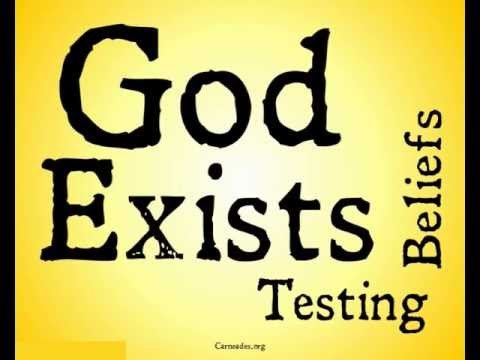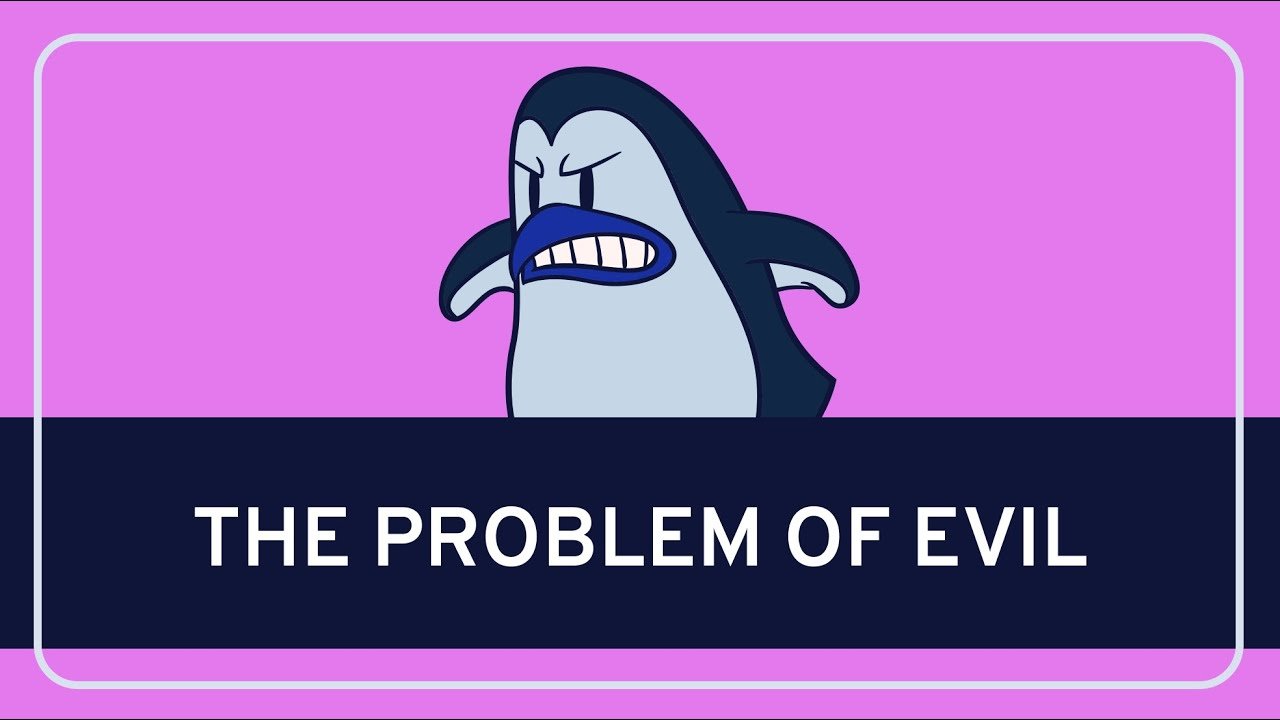Alright, today we’re going to be looking at something called: Now, before we get started, I want to make it clear that I’m not here to push my own position or agenda. I’m here to put to the test some of our most closely held beliefs,
And see if they hold up to the high standards of what we’re all really searching for… Before we get started, one more quick caveat: This is a basic introduction to The Problem of Evil. If you want something more philosophically rigorous, I suggest you do some reading, read: and a response to that:
They do a good job of providing a rigorous, yet – for the most part – accessible debate on this problem. With that out of the way… Now, what we’re doing here is we’re testing beliefs. We’re testing closely held beliefs, and today we’re testing one of the biggest ones of them all:
The belief that God exists! The Problem of Evil is going to help us see if this belief can hold up to the high bar of knowledge that we sent. Not do we want to believe God exists? But can we know that God exists?
Before we go, we need to know who this is a problem for. This is a problem for people who believe in God. This is a problem for people who believe in a specific kind of God. It’s a God that is: If this God, isn’t your God, this isn’t your problem 😉
Now there are 2 versions of The Problem of Evil that we’re going to be looking at: The Logical Problem of Evil and the Evidential Problem of Evil. The Logical Problem of Evil is generally considered more…philosophical, but it packs a bigger punch!
It’s a little harder to grasp for the everyday person. But, it’s more powerful to the rational mind! The Evidential Problem of Evil – on the other hand – is more…convincing (usually to people). In fact, it’s convinced a lot more people than the logical one has.
But…it’s less powerful when it comes to actual philosophical power. Someone who really believes in God can get out of the Evidential Problem fairly easily, alright? Okay, we’ll start with The Logical Problem. The Logical Problem states that there are 4 Inconsistent Propositions that we hold to be true.
Inconsistent Propositions means that they can’t all be true, so we’re gonna have to get rid of one of them. So, what are those 4 propositions? They are: We read about that earlier. If you believe in a 3-O God – omniscient, omnipotent, omnibenevolent –
Then you believe that God is all-knowing, so you’re on board so far. Omnibenevolence, we’re already there. Guess what number 3 is? So, what is the mysterious number 4? It’s the place the problem gets its name, it is: The idea being – that if there were an all-good, all-knowing, all-powerful God –
That God would stop Evil from existing. Let’s look at an example, to see how this works: So you have a murderer, for example, – and let’s give our murder a knife – and this murder is going to… …do something to this victim. I think we all know what’s going to happen… …but…
This Evil, I’m sure we would all consider this evil, if you wouldn’t, put something you would consider evil in there… …would be, by an all-knowing, all-good, all-powerful God, stopped, right? God would come in – unleash the Hand of God – …and Evil wouldn’t happen… But that doesn’t happen… …evil exists… So
Supposedly, to get out of this argument, there are some escape routes, 5 to be specific: You can say that: Maybe God’s all-good and all-powerful, but he just doesn’t know about the evil going on in the world. Maybe he’s very far away. Maybe he’s only in certain places at certain times.
He does the best he can, but he just doesn’t know about all the evil… Possibility, but it doesn’t give us the God we’re looking for. God is mean, or maybe God just doesn’t care? He can stop the evil, he knows about the evil, but he doesn’t want to, or he chooses not to.
Maybe he’s vengeful? A lot of possibilities here, but once again, it doesn’t give us the God we’re looking for. Or finally, maybe God is weak? God can’t stop evil. He knows about it. He wants to stop it, but he can’t stop it.
Once again, it doesn’t give us an all-powerful God, and that’s exactly what we’re looking for. Another way out of this, is to claim that evil doesn’t exist. This is a little sketchy as far as things go, because if you think that, Evil as a concept doesn’t exist,
Then you probably don’t think that God can be all-good, because you don’t really believe in good and evil. And if you’re gonna claim that evil doesn’t happen in the world, well…I want to see your definition of “evil.” That’s a little sketchy as far as escape routes go…but there is a 5th escape route,
Which is probably going to be what a lot of our defenders of God take, and that’s: In fact, that we can hold all 4 of our premises – God is all-knowing, God is all-good, evil exists, and God is all-powerful – together, without committing any inconsistencies.
Now, we’re going to talk about the Evidential Problem of Evil. This problem, is a little less philosophical than a Logical problem. It doesn’t go to premise, premise, conclusion. It more says, “Well, let’s look at the evidence out in the world.” Hence the name Evidential Problem.
Look at the evidence out in the world, and see – from this evidence – what’s more likely a conclusion to draw: That God exists, or that God doesn’t exist. Let’s see I’ll present you with some evidence… …you make up your own mind…
The idea here, of course, is that, if you have seen the horrors that go on in this world… Or if you suffered great trauma… You might come to conclude that: No God could allow such a thing to exist.
The only conclusion you can draw based on the evidence, is that God does not exist? On my count, there are three places you could have ended up after all of that argument: You could say, “Despite The Problem of Evil, God still exists.”
You could say that, “The Problem of Evil has convinced me. I believe God is dead. God does not exist.” Either of these positions, however, I think it’s unsubstantiated in some ways. God exists? We haven’t really had an argument for God’s existence.
And, if The Problem of Evil has done anything, it’s called into doubt God’s existence. On the other hand, God is dead? I’m not so sure? Because, while The Problem of Evil has given us a pretty strong argument for a specific kind of God,
It hasn’t given us an argument against all gods, nor has it resolved the little concern we mentioned earlier… About what if we can find a way to show that those 4 propositions aren’t inconsistent. In fact, planning it is a good job of attempting to, in our next video.
So, what I would say, our only option here: To stay rational, is to suspend judgment. In other words, to say, “God might exist, God might not exist.” One way or another, I don’t have enough information for either of those beliefs to rise to the level of knowledge.
I’ll leave you with a quote from David Hume, that fairly succinctly sums up… The Problem of Evil If you enjoyed this video you’d like to see more or you’d like to put some of your own beliefs to the test, please Watch some more videos and visit Carneades.org…and stay sceptical everybody! 😉
#Problem #Evil


